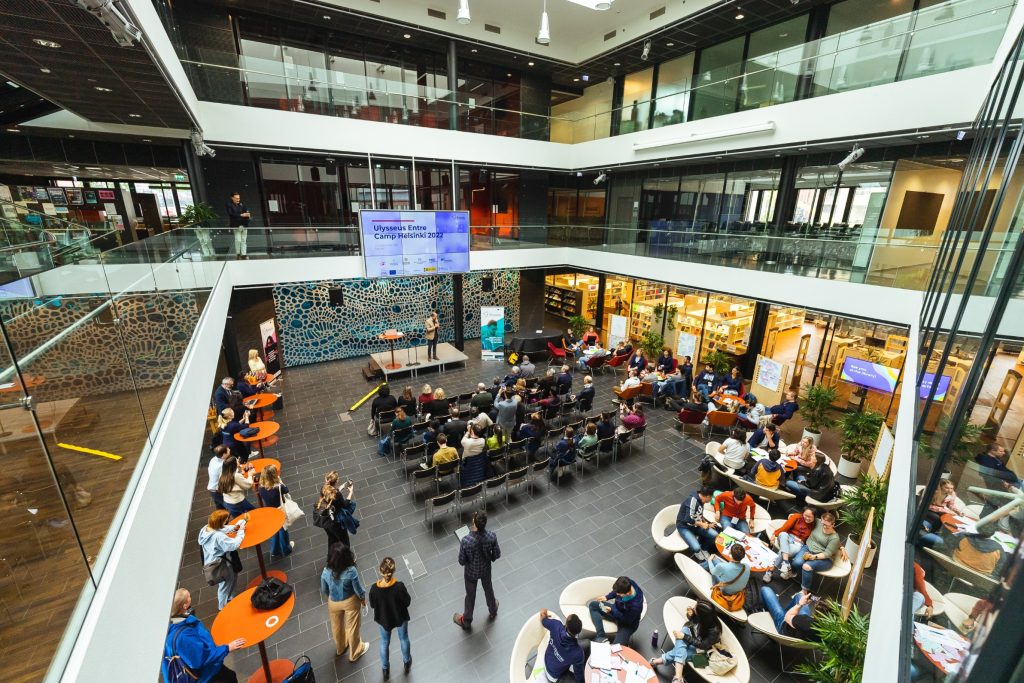The Bezirksregierung Münster is one of five district governments in North Rhine-Westphalia. It represents the state government in the Münster administrative district. It bundles regional forces and aims to create consensus.
Associated Partners
Associated Partners are regional and local authorities, businesses, and citizens who participate and contribute to both the Ulysseus long-term mission and to our regional development and to shape the future of the European Higher Education. They are involved in the co-creation and design thinking processes, in the plans and structures and in the programs of activities of Ulysseus.
Discover the full list of Ulysseus European University Associated Partners with more than 150 organisations.

Filter & Search
Close/Open filterThe Communauté d’agglomération de Sophia Antipolis (CASA) is the communauté d’agglomération, an intercommunal structure, centred on the city of Antibes. It is located in the Alpes-Maritimes department, in the Provence-Alpes-Côte d’Azur region, southeastern France. It was created in 2002, and takes its name from the technology park Sophia Antipolis, the largest Technopolis in Europe.
The European and International Affairs Sector of Liguria Region aims at promoting the knowledge of the funding programmes directly managed by the European Commission on the topics of major interest for Liguria Region through the organisation of training and information events and courses, ensuring the participation and inclusion of Ligurian stakeholders and citizens. The response to the calls for tenders of various European programmes allows the Sector, and consequently the Liguria Region, to create synergies with the stakeholders including the University of Genoa, the Municipalities, in-house companies, and with the other actors of the European territory in order to implement projects focused on relevant issues, such as social inclusion, sustainable territorial development, green infrastructures, climate change adaptation.
The dissemination of key themes promoted by the European Commission, such as sustainability, social inclusion and beauty, has found its concretisation in the event ”The New European Bauhaus in Liguria – identity| inspiration| interaction| ideas| initiatives”, organised in June 2022, with the aim of promoting the exchange of knowledge and launching a path of reflection and innovation on the territory’s identity. In addition to the integration of New European Bauhaus principles in territorial planning, the Sector aims at the dissemination of transversal competences (”NEB skills”) considered fundamental to keep young people and the working-age population as a whole up-to-date with labour market evolutions, such as green skills or education in planning and entrepreneurial mentality. The topic is of particular relevance in 2023 (European Year of Skills) and it is fertile ground for the Sector’s cooperation with the academic world (in particular the University of Genoa) and the private sector. Thanks to the restart of the activities of its Office in Brussels, the European and International Affairs Sector aims at identifying and consolidating the essential institutional relations for the Liguria Region with the European Institutions and with the European networks of which the Region is already a member, including EUREGHA, ERRIN, NECSTouR.
The Helsinki-Uusimaa Regional
Council is a regional developer (RIS3)
Regional public authority
Provincial Government
The Region is competent to promote the economic, social, health, cultural and scientific development of the region, support for access to housing and the improvement of housing, support for urban policy and urban renewal and support for education policies and the planning and equality of its territories, as well as to ensure the preservation of its identity and the promotion of regional languages, with respect for the integrity, autonomy and powers of departments and municipalities". The region participates in the coordination of the actors of the public employment service on its territory. The President of the Regional Council and the Prefect shall jointly develop a coordinated strategy for employment, vocational guidance and training. The region shall draw up a regional waste prevention and management plan including targets for waste prevention, recycling and recovery. Regarding water management and resource protection, the regional council may be assigned all or part of the animation and consultation missions when the state of the waters presents health and environmental issues justifying a coordinated management of the different sub-basins of the region.
In terms of transport, the region becomes the organising authority for all interurban mobility. The region organizes non-urban, regular or on-demand services, excluding special transport services for disabled pupils to schools. The region also organizes regular public maritime transport of people and goods to serve the French islands (except for islands that belong to the territory of a continental municipality).
Management of university education; promotion and coordination of scientific and technical research and knowledge transfer and technology in the Andalusian Knowledge System; support for technological innovation and business investment in technology.